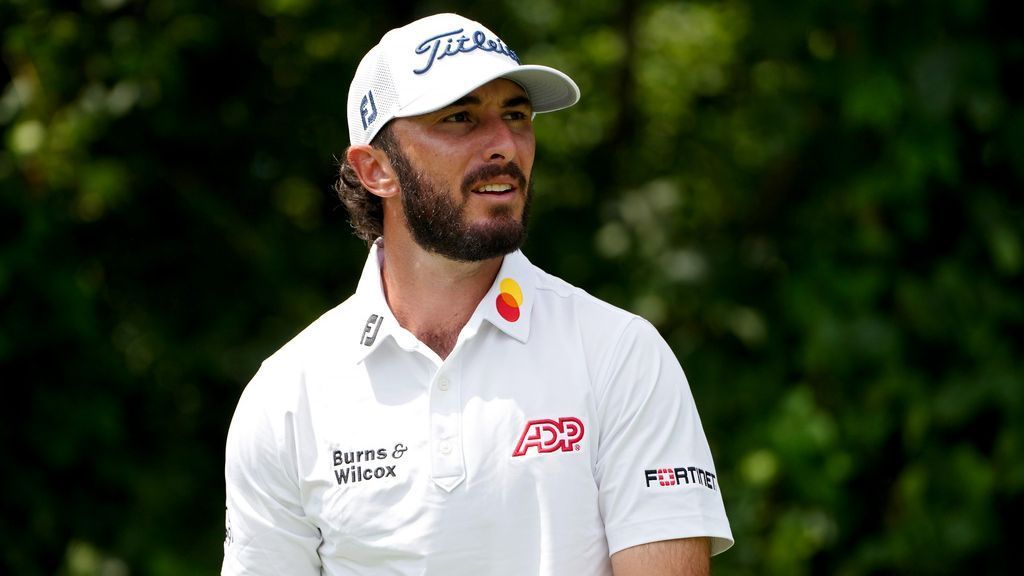In line with the USGA, the phrase ‘fore’ originated in Scotland and is an abbreviated model of ‘earlier than’ or ‘afore’. However ‘why do golfers shout fore?’ you may ask.
The USGA web site goes on to state: “The previous Scottish warning, primarily which means ‘look out forward’ likely originated in army circles, the place it was utilized by artillery males as a warning to troops in ahead positions. Golfers as early because the 18th century merely adopted this army warning cry to be used on the hyperlinks.”
Why do golfers shout fore?

A probable derivation is expounded to the time period ‘forecaddie’.
In years passed by, a forecaddie was employed to face the place
the ball may land to keep away from shedding them. Provided that golf balls had been initially
handmade and customized ordered, they represented a big expense, so forecaddies held
a key function in holding on to your prized golf balls.
Information courting again to the seventeenth century assist this hyperlink, and ‘forecaddie’ was subsequently shortened to ‘fore’, presumably as a result of it was faster to shout forward of an incoming golf ball.
Why do golfers shout fore? The Guidelines

The extra modern-day Guidelines of Golf cowl the necessity to shout ‘fore’ as early as Part 1.2a: Conduct Anticipated of All Gamers. This states that gamers are anticipated to play within the spirit of the sport by “exhibiting consideration to others.”
For instance, by taking part in at a immediate tempo, searching for
the protection of others, and never distracting the play of one other participant. If a
participant performs a ball in a course the place there is perhaps a hazard of hitting
somebody, they need to instantly shout a warning, equivalent to the standard
warning of “fore”.
Nevertheless, it additionally states that “there is no such thing as a penalty below the Guidelines for failing to behave on this method, besides that the Committee might disqualify a participant for appearing opposite to the spirit of the sport if it finds that the participant has dedicated severe misconduct.”
And herein lies an issue, you possibly can say. Golfers are anticipated to shout ‘fore’ if there’s even the remotest likelihood of hitting somebody, however the lack of a set penalty can result in a mess of excuses—for amateurs, no less than.

Golfers will plead that they overpassed the ball, didn’t
realise they might attain a sure distance, weren’t conscious there was one other
group on one other gap, or had been perhaps simply too embarrassed by their poor shot—all
of which might be pretty irritating should you’re the individual on the unsuitable finish of a Professional
V1 that hits you mid-flight.
There’s completely no excuse for the professionals, although, significantly on the very prime of the sport the place you’ve bought caddies and marshals.
We do typically have the occasional instance the place a professional may
not shout within the hope it’ll cease their ball from working into extra hassle, or the place
they may even intention to hit one into the grandstand, understanding it’ll give them a
free drop from a extra preferable place.
Some gamers, like Justin Thomas and Rickie Fowler, for instance, are capable of pull off an amusing level of the arm to sign a large shot, and usually, there appears to be much less public shaming of gamers who can’t open their mouths in time.
Fore controversy on the 2019 Open Championship
Nevertheless, one of many extra public fall-outs got here on the 2019 Open when Bob MacIntyre did the unthinkable and referred to as out his taking part in associate, Kyle Stanley, at Royal Portrush.
The Scot was taking part in in his first Open when Stanley hit a
huge one off the seventeenth tee through the second spherical, and the ball hit
and bruised the hand of his caddy’s mom. In line with MacIntyre, there was
no shout of ‘fore’.
He instructed the press on the time: “We’re shouting because it’s coming into the gang, and he’s simply standing watching it. Folks don’t have sufficient time to react after we shout. It hits my caddy’s mother. And so I instructed them the way it was. I stated I wasn’t completely satisfied and I didn’t actually just like the response. He’s the one one I’ve seen. Straight within the crowd. It was within the crowd from the phrase go. And we anticipate them to shout ‘fore’.
“He didn’t take it properly in any respect. Simply shout, easy as that.
Persons are diving out of the best way of issues when they need to have extra time.”
Nevertheless, Stanley claimed that there had been loads of warning that the tee shot was coming their method.
He responded: “A number of individuals on the tee field yelled fore. My two taking part in companions, my caddy, a few the volunteers or the marshals, even had them signalling it was going proper. I imply, everybody to the best of that ball, they knew it was coming.”
MacIntyre argued that since Stanley had hit the ball first,
he ought to have additionally been the one to shout ‘fore’ first.
Stanley added: “If his situation was with me not being the primary
individual to say fore, does he have some extent? Does he not have some extent? That’s up
to him. All I do know is after I hit the ball it wasn’t however a few seconds
when a number of individuals on the tee field began shouting fore. I believed that was
sufficient. My intention was to by no means do something destructive or put anyone within the
gallery in hurt’s method.”
The rule, it appears, is fairly easy—if in any doubt, shout ‘fore’. Loudly.
Now you realize the origins of ‘fore’, and extra importantly, why golfers shout it, you’ll be able to ensure you’re taking part in fastidiously and searching on your fellow golfers on the course.
Nevertheless, even when you’ve got adopted the right procedures and shouted ‘fore’, accidents can nonetheless occur when photographs are mishit, so you might need to take into account defending your self with specialist golf insurance coverage.
With Golf Care, you will get Public Legal responsibility cowl as much as £10m so you’ll be able to play with peace of thoughts.
Click on on the banner beneath to be taught extra and get a quote.
![]()


















